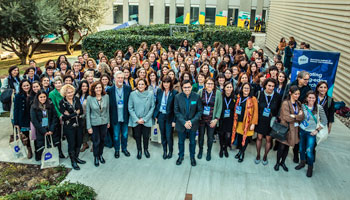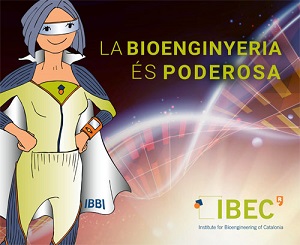Tècnic/a en Espais i Infraestructures de Recerca
 Data límit: 01/03/2021
Data límit: 01/03/2021
L’Institut de Bioenginyeria de Catalunya (IBEC) requereix incorporar un/-a Tècnic en Espais i Infraestructures de Recerca per la unitat de Core Facilities de l’IBEC, que te la funció de proporcionar serveis i suport diaris a les operacions relacionades amb infraestructures i logística del IBEC.




